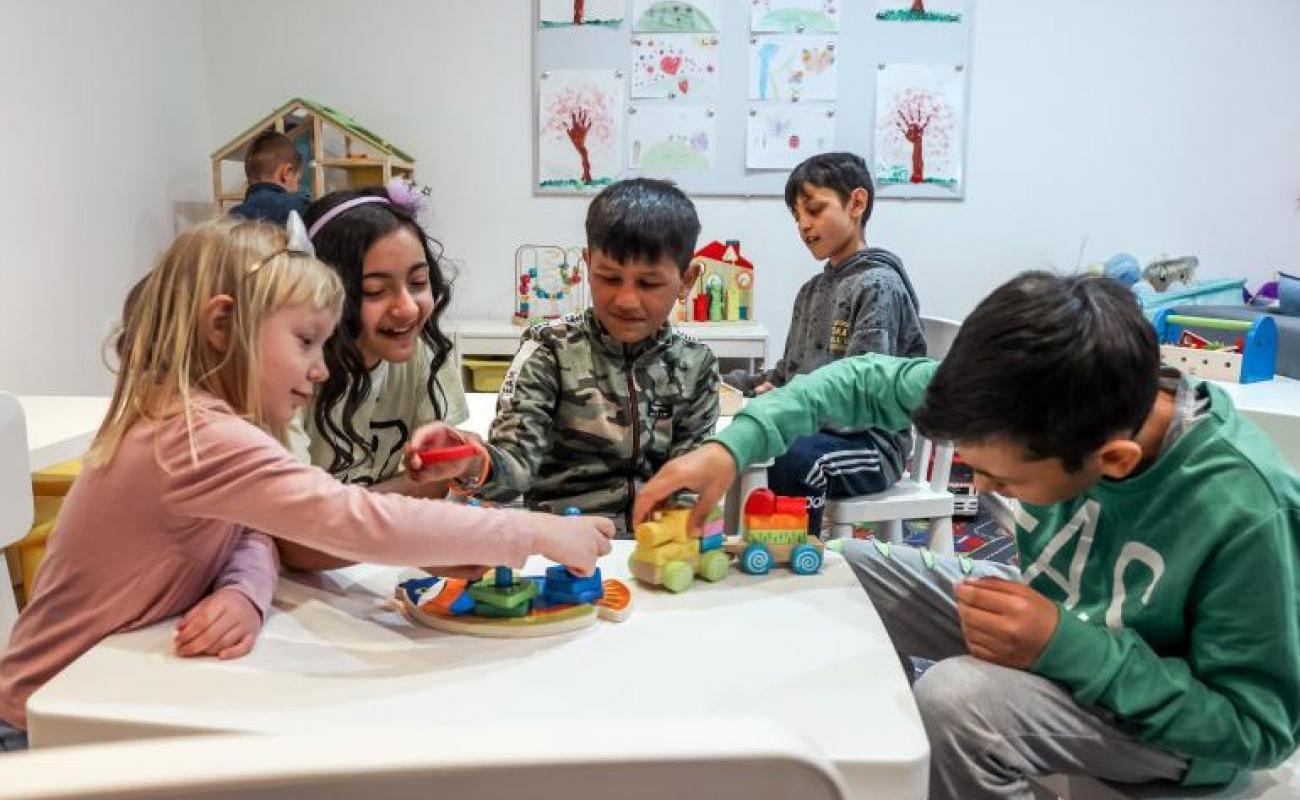UNICEF is successfully testing innovative models of preschool education in cooperation with partners within the EU Child Guarantee pilot-program

Zagreb, January 24th, 2023 – Quality preschool education helps mitigate the negative effects of poverty on children's education and development, but access to these services is still difficult and inaccessible to many children, especially those who live in poverty and social exclusion. The EU Child Guarantee pilot-program, funded by the European Union, aims to include all children, and break the cycle of inequality by testing innovative models of early and preschool education. It is implemented in Croatia by UNICEF, in cooperation with partners.
Three Play Hubs with Toy libraries have been established in Međimurje County, which provide opportunities for informal preschool education of children and learning through play, which is especially important for children aged three to six and in areas where access to kindergartens is not yet assured. Play Hubs at Orehovica, Držimurec-Strelec and Kuršanec have so far included more than 300 children and their families in the preparation for kindergarten and primary school. Play Hubs also employ three Roma assistants and three educators.
“In preparing and thinking about each activity, I pay special attention to ensure that not a single child, regardless of the conditions they live in, feels excluded or unable to do something or participate in an activity. That is why I try to come up with activities that parents can repeat at home with their children and involve the whole family. In doing so, I always make sure that I use materials available to everyone, such as paper and a pencil”, said Monika Horvat, coordinator of the Play Hub in Orehovica.
To learn how to work with children belonging to different groups, such as children with disabilities, children who grow up in precarious conditions or children of the Roma national minority, 121 educators from 5 kindergartens were trained. In addition, 76 students of early and preschool education at the Faculty of Teacher Education, Čakovec branch, carried out for the first time part of their teaching practice outside of kindergarten, in the informal setting of Play Hubs in Roma settlements.
“In Play Hubs students met children who come from a different background, and this helps them in developing their competencies. This kind of practice prepares students to meet the population that they usually do not meet in formal educational institutions, so it is an added value to their education”, explains Adrijana Višnjić Jevtić, Phd, Faculty of Teacher Education.
Teachers and other experts who work with children also completed training on the innovative Persona Doll method. This method is specific in that the doll is used as a mediator between teachers and children and presents them with various anti-discrimination scenarios.
“We are focusing currently on life-practical topics, as we were in the process of transition from nursery school to kindergarten. Children got two new teachers, so with the help of the doll Davor, we are solving some potentially difficult and sad adjustments in our group. The results of working with this method are most visible in the expression of empathy, towards friends or towards teachers”, explains Lana Kovačević, a kindergarten teacher at the Kindergarten Maslačak in Mursko Središće.
“Children who are involved in some form of early and preschool education achieve better results in school, create and maintain relationships with others more easily, are more ready to deal with challenges and have better predispositions for success later in life. After two years of implementing the EU Child Guarantee program, we realize together that the models we implement bring positive changes in the community. We will continue to work with various sectors to ensure that every child, regardless of who they are or where they live, has access to early and preschool education”, said Ana Dautović, Deputy Representative of the UNICEF Office for Croatia.
“Phase III: Testing the Child Guarantee” is funded by the European Union and is implemented in seven European Union countries to ensure access to basic services such as health care, education, quality nutrition, quality housing and care services for children growing up in the most difficult circumstances. The Republic of Croatia was given the opportunity to model the EU Child Guarantee in cooperation with the European Commission and UNICEF in order to work on tackling child poverty and social exclusion, so this pilot-programme is aimed primarily at children with disabilities, children living in a precarious family environment and children of national minorities. It is implemented in seven municipalities of Međimurje County, and through cooperation and knowledge of implementing partners interventions take place in three areas: integrated child protection services and family support, early intervention services and access to quality preschool education.
